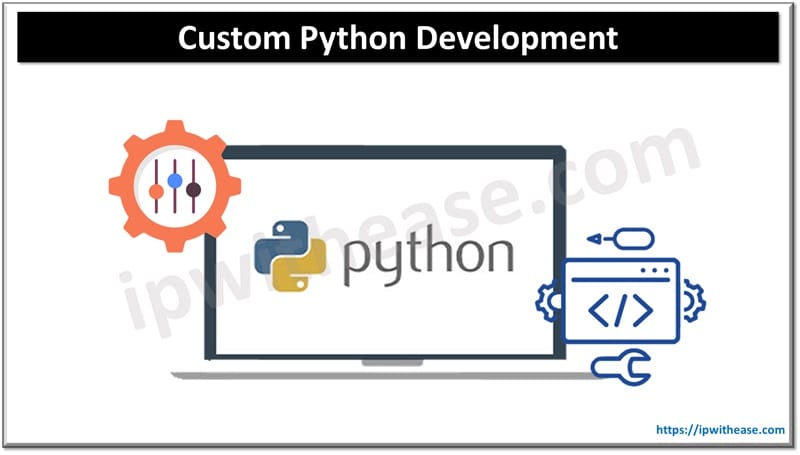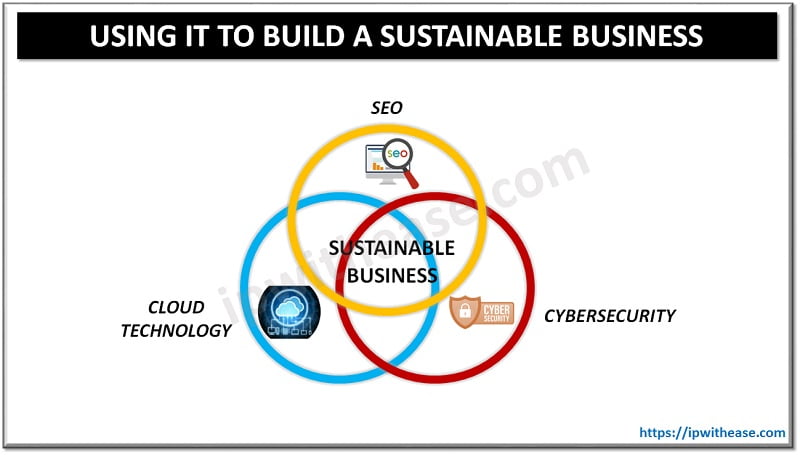Table of Contents
The relevant programming language establishes the direct way for the success of a product. Python is a top-three popular programming language of 2023, coming as an excellent choice for startups due to its simplicity, flexibility, and scalability. With a fully-fledged ecosystem of frameworks and libraries, Python allows startups to implement their most sophisticated ideas faster, providing long-term scalability. Yet, to fully capitalize on Python’s strengths, startups need to follow best practices that maximize development efficiency, maintainability, and performance.
In this post, we’ll outline the ten Python development best practices that will help startups leverage Python effectively in custom development projects, leading them to prosperity in the long run.

Best Practices for Python Development
Choose the Right Python Framework or Libraries
The Python ecosystem is pretty rich, so the primary aspect is to select the relevant libraries and frameworks. You can easily delegate this task by cooperating with a trusted Python development company for startups. The tech experts can pick the most appropriate and beneficial set of tools tailored to your project’s needs, making it even more qualitative.
Frameworks That Suit Startup Needs
For startups, the choice of framework can significantly impact the speed of development and scalability. Django is a robust full-stack framework that provides everything you need out of the box, including an ORM, authentication, and an admin panel. It is often a great fit for large-scale, more complex applications. Flask, another popular framework, is lightweight and flexible, addressing the needs of smaller applications where speed and simplicity are essential.
In these terms, startups should make well-thought-out decisions based on the project size, complexity, and timelines before selecting a framework. Flask is excellent for projects requiring rapid prototyping, while Django is ideal for projects requiring more structure and scalability.
Leverage Python’s Vast Ecosystem
Why should you use Python for web development? Python’s valuable advantage lies in its all-around collection of libraries, which can accelerate time-to-market and expenses in parallel. Going for well-maintained libraries, such as Requests for HTTP requests and Pandas for data manipulation, can boost the development flow while ensuring failure resistance, high quality, and smooth performance. Employing open-source libraries also allows you to dive into a community of enthusiasts who help maintain and improve these tools further.
Related: What is Pylint? Python Programming Tool
Prioritize Clean, Readable, and Maintainable Code
Putting clean, readable, well-documented code first is one of the Python best practices for code quality. It ensures long-term maintainability and collaboration, especially for fast-growing startups.
Follow PEP 8 Guidelines
Startups often extend quickly, and having a team of developers work cohesively on the same codebase means that consistency is a must. Following Python’s PEP 8 style guide guarantees that your code remains clean, readable, and easy to maintain. Adopting PEP 8 will speed up onboarding new developers and guarantee that each team member follows the same coding standards.
Write Modular and Reusable Code
Speed is a critical indicator for market newcomers, but writing monolithic, tangled code can lead to long-term maintenance obstacles. An excellent approach to solving this is breaking your code down into reusable functions and classes. You can adhere to the DRY (Don’t Repeat Yourself) principle. Doing so can make your code more maintainable and improve its scalability as you integrate some advanced features.
Comment and Document Your Code
Developers move quickly in startups, so there’s also a massive need to write meaningful comments and use docstrings to describe the functionality of functions, methods, and classes. Sphinx can generate project documentation automatically, optimizing team collaboration and helping businesses get up to speed.
Implement Automated Testing Early
Robotized testing increases test coverage, cost efficiency, software stability, and offers other solid pros.
Unit Testing
Testing shouldn’t be sidelined in startups, so a culture of testing from the outset can save time and resources in the long run. Libraries like unittest or PyTest can help technicians write unit tests for every feature and function. Such a strategy prevents regressions and allows the identification of bugs early in the development cycle.
Continuous Integration for Testing
Automating your testing process with Continuous Integration (CI) ensures that your codebase remains bug-free as you scale. There are special tools that can automatically run tests whenever code is pushed to the repository, unhiding challenges before they become costly problems. Some of such instruments are GitLab CI, Jenkins, or Travis CI.
Use Virtual Environments to Isolate Dependencies
Virtual environments in Python are essential for managing project-specific dependencies and avoiding conflicts between different libraries or Python versions.
Why Virtual Environments Matter
Python projects often require different versions of packages, which can lead to compatibility issues. Virtual environments (created with instruments like venv or virtualenv) allow you to isolate dependencies for each project, ensuring that you don’t run into conflicts with different libraries or Python versions.
Dependency Management
Managing dependencies with pip or pipenv ensures that all developers on your team are working with the same packages and versions. Maintaining a requirements.txt file or Pipfile makes tracking and installing dependencies easy, reducing the risk of version mismatches.
Embrace Version Control with Git
Effective version control practices are the best way to maintain code integrity, track progress, and collaborate seamlessly in development environments.
Commit Often and Write Meaningful Messages
Version control is essential for any development project, but startups, in particular, benefit from the ability to track progress, prevent data loss, and collaborate even when working remotely. Regular commits with clear, descriptive messages allow developers to follow the project’s history and identify any possible issues.
Branching and Collaboration
Using a branching model, such as Gitflow, facilitates parallel development and streamlines the process of code review. Platforms like GitHub and GitLab offer tools that make collaboration more manageable, allowing teams to work simultaneously on different features or bug fixes.
Related: Python vs PHP
Leverage Python’s Asynchronous Capabilities
Python’s asynchronous capabilities can tangibly enhance application performance, particularly for startups dealing with I/O-bound operations.
Use Asynchronous Libraries When Necessary
Asynchronous programming can improve performance for startups building applications with heavy I/O-bound operations, such as handling API calls or database queries. A range of Python libraries, like asyncio, aiohttp, and Celery, help handle asynchronous tasks and improve the efficiency of your application.
Know When to Use Async
It’s important to assess whether asynchronous programming is necessary for your project. While it can improve performance in specific applications, using async in the wrong context can complicate your codebase. Make sure to balance performance elaborations with code simplicity.
Optimize for Performance and Scalability
Focusing on code optimization and scalable infrastructure is important to ensure your startup’s application can handle growth and deliver optimal performance.
Profiling and Optimizing Code
Performance directly sets the base of user experience, which is vital for startups that expect rapid growth. Using cProfile, you can identify bottlenecks in your code and optimize accordingly. Regular profiling can reduce memory usage, improve processing time, and ensure that your product can cope with increased user loads.
Scale with Cloud Platforms
Startups can also make use of cloud services like AWS Lambda and Google Cloud Functions to scale applications without managing physical infrastructure. Containerization with Docker also ensures that your application runs consistently across different environments, setting a solid base for future scalability.
Implement Security Best Practices
Following the Python coding best practices for strong security from the outset substantially advances the protection of your startup’s software and protects against widely faced vulnerabilities.
Avoid Common Vulnerabilities
Security should be a priority for startups and all businesses from the beginning. You can elevate your software safety with Bandit, which can scan your Python code for vulnerabilities and prevent common threats such as SQL injection and cross-site scripting (XSS). Implementing secure coding practices early can save your startup from costly breaches later.
Secure API Development
When it comes to startups that build APIs, it’s vital to use secure communication methods such as HTTPS, OAuth, and JWT (JSON Web Tokens). Besides, always validate user input and use encryption for sensitive data to guarantee your API is secure.
Stay Updated with Python Versions and Libraries
Keeping up with Python versions and libraries maintains optimal performance, security, and access to the freshest features in your startup’s platform.
Keep Python and Libraries Up-to-Date
The Python community frequently releases updates that introduce performance improvements, security patches, and new features. Keeping your Python runtime and libraries up-to-date ensures that your startup’s application profits from the latest advancements while eliminating security risks.
Use Virtual Environment for Easy Updates
Virtual environments enable you to test and update dependencies without impacting the entire system. Therefore, you can achieve a more manageable environment when updating packages, reducing the risk of breaking your application during updates.
Build a Strong DevOps Culture
Startups can heavily benefit from a strong DevOps culture by accelerating development and streamlining infrastructure operation.
DevOps for Faster Iteration
Startups need to iterate fast, and DevOps practices like continuous integration, continuous deployment (CI/CD), and monitoring offer faster release cycles. Automating such flows allows your startup to deploy new features and bug fixes more regularly, decreasing the deployment times.
Infrastructure as Code
Tools like Terraform or Ansible allow startups to automate and version control their infrastructure. This ensures that your cloud resources are consistent, scalable, and easy to manage as your startup grows.
Conclusion
By adopting these Python best practices, startups can ensure that their Python development efforts result in robust, scalable, and maintainable applications. The guidelines we’ve mentioned can help you choose the right framework, prioritize clean code, and implement robust security measures, setting your startup up for ongoing success in custom Python development.
Feel free to share your experiences or ask questions about Python development in the comments below.
ABOUT THE AUTHOR
IPwithease is aimed at sharing knowledge across varied domains like Network, Security, Virtualization, Software, Wireless, etc.



